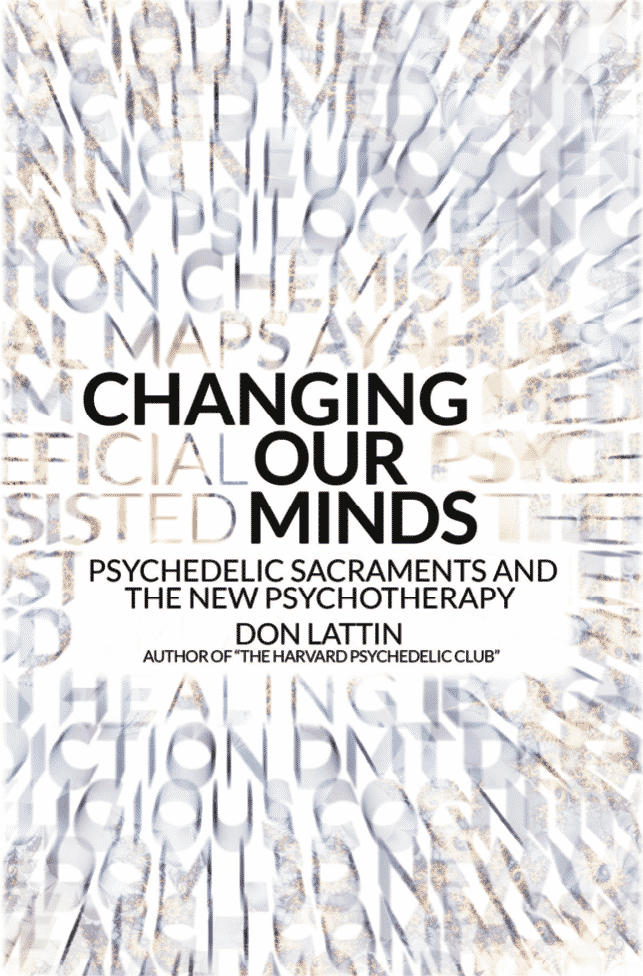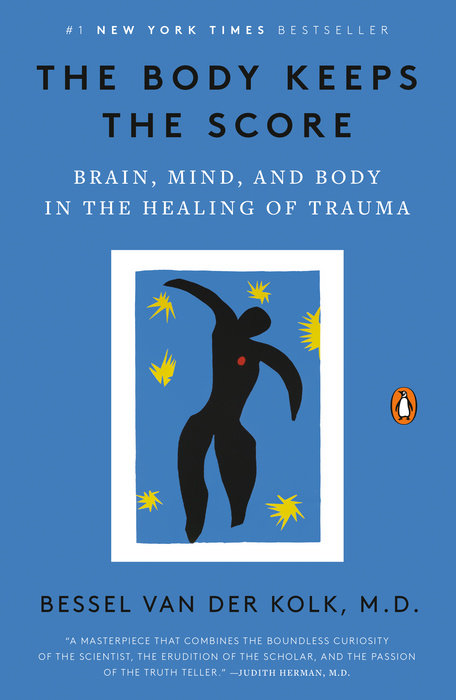Wisdom, Plant Medicine & Transformational States | Spring Washam
By
Spring Washam — 2019
YOU MIGHT ALSO LIKE
CLEAR ALL
BY TOPIC
BY TEACHER
BY TYPE
FILTER

TOPIC
- PTSD (44)
- Ayahuasca (41)
- Plant Spirit Medicine (37)
- Healing Approaches (32)
- Psychedelic Journey (29)
- Mind-Body Connection (27)
- Child’s Trauma (25)
- Self-Healing (24)
- Indigenous Healing Approaches (23)
- MDMA (22)
- BIPOC Well-Being (21)
- Psilocybin (21)
- Shamanic Healing (20)
- Dysfunctional Childhood (19)
- Veteran Well-Being (19)
- Emotional and Mental Health (18)
- Altered States (16)
- Energy Healing (16)
- South American Shamanism (16)
- Black Well-Being (15)
- Collective Trauma (15)
- LSD (15)
- Post-Traumatic Growth (15)
- Intergenerational Trauma (14)
- Racial Healing (14)
- Racism (14)
- Depression (13)
- Self-Discovery (13)
- Neuroscience (12)
- Resilience (12)
- Connection with Nature (11)
- Anxiety (10)
- Cancer (10)
- Neoshamanism (10)
- Self-Care (10)
- Shamanism (10)
- Stress Management (10)
- Transformation (10)
- Caregiver Well-Being (9)
- Sexual Assault or Abuse (9)
- Trauma-Informed Therapy (9)
- Addiction (8)
- Community Healing (8)
- DMT (8)
- Drug Policy (8)
- Embodiment (8)
- Mental Health Challenges (8)
- Self-Reflection Practices (8)
- Shame (8)
- Somatic Experiencing (8)
- Somatic Practices (8)
- Addiction Recovery (7)
- Breathwork (7)
- Chronic Health Conditions (7)
- Consciousness (7)
- Inner Child (7)
- Racial Justice (7)
- Spirituality and Health (7)
- Activism/Service (6)
- Cross-Cultural Dynamics (6)
- Finding Meaning (6)
- Imagination and Creativity (6)
- Integrative Medicine (6)
- Interdependence (6)
- Meditation (6)
- Plant-Based Medicine (6)
- Religious Experience (6)
- Visions and Hallucinations (6)
- Women’s Well-Being (6)
- Art Therapy (5)
- Awareness (5)
- Epigenetics (5)
- Family Dynamics (5)
- Honoring Emotion (5)
- Ketamine (5)
- Life-Altering Injury (5)
- Naturopathy (5)
- Psychology (5)
- Self-Compassion (5)
- Self-Development (5)
- Spiritual Awakening (5)
- Suffering (5)
- Alcohol Addiction (4)
- Ecospirituality (4)
- EMDR (4)
- Functional Medicine (4)
- Generational Healing (4)
- Global Challenges (4)
- Illness and Injury (4)
- Indigenous Well-Being (4)
- Intimacy (4)
- Living with Illness (4)
- Military to Civilian Re-entry (4)
- Reiki (4)
- Relationship Challenges (4)
- Science and Spirituality (4)
- Self-Acceptance (4)
- Self-Actualization (4)
- Self-Love (4)
- Setting Limits and Boundaries (4)
- Spiritual Growth (4)
- Stress (4)
- Transcendent Experience (4)
- Anger (3)
- Archetypes (3)
- Attachment Theory (3)
- Chakras (3)
- Codependency (3)
- Compassion (3)
- Disabled Well-Being (3)
- Forgiveness (3)
- Grief (3)
- Grit (3)
- Holism (3)
- Homeopathy (3)
- Letting Go (3)
- Memoir (3)
- Microdosing (3)
- Mindfulness Practices (3)
- Parenting (3)
- Racial Discrimination (3)
- Sacred Feminine (3)
- Self-Realization (3)
- Self-Worth (3)
- Smoking Addiction (3)
- Social Justice (3)
- Social Responsibility (3)
- Spiritual Life (3)
- Spiritual Practices (3)
- Toxic Relationships (3)
- Transpersonal Psychology (3)
- Traumatic Grief (3)
- Well-Being (3)
- AAPI Well-Being (2)
- Abandonment (2)
- Adaptability (2)
- Athlete Well-Being (2)
- Belonging (2)
- Buddhism (2)
- Christian Mysticism (2)
- Clinical Depression (2)
- Cognitive Behavioral Therapy (2)
- Communication Skills (2)
- Comparing Belief Traditions (2)
- Creative Well-Being (2)
- Crystals (2)
- Discrimination (2)
- Dreamwork (2)
- Ego Dissolution (2)
- Entrepreneurship (2)
- Fellowship and Community (2)
- Female Empowerment (2)
- Genetics (2)
- Guided Imagery (2)
- Handling a Loved One’s Illness (2)
- Healing Touch (2)
- Hero’s Journey (2)
- Higher Calling (2)
- Holotropic Breathwork (2)
- Indigenous Rights (2)
- Inflammation (2)
- Inner Peace (2)
- Internal Family Systems (2)
- Islam (2)
- Journaling (2)
- Joy (2)
- Karma (2)
- Love (2)
- Massage (2)
- Men’s Well-Being (2)
- Neuropsychology (2)
- Offering Support to Others (2)
- Other Dimensions and Beings (2)
- Past Life Regression (2)
- Prayer (2)
- Presence (2)
- Psychological Approaches (2)
- Romantic Relationships (2)
- Search for Purpose (2)
- Self-Esteem (2)
- Self-Limiting Beliefs (2)
- Self-Reckoning (2)
- Sex (2)
- Shadow (2)
- Spiritual Crisis (2)
- Spiritual Development (2)
- Spiritual Quest (2)
- Suicide (2)
- Trust (2)
- Vulnerability (2)
- Wholeness (2)
- Wicca (2)
- Witchcraft (2)
- Yoga (2)
- Zen Buddhism (2)
- Accepting Love (1)
- Acupuncture (1)
- Animal Connection (1)
- Anorexia (1)
- Aura (1)
- Auric Field (1)
- Authenticity (1)
- Autoimmune Disease (1)
- Ayurveda (1)
- Betrayal (1)
- Biofeedback (1)
- Body Mapping (1)
- Bodywork (1)
- Brain Health (1)
- Buddha Nature (1)
- Building Culture (1)
- Burnout (1)
- Child’s Emotional Growth (1)
- Chiropractic (1)
- Christianity (1)
- Chronic Anxiety (1)
- Chronic Pain (1)
- Cognitive Psychology (1)
- Compassion Fatigue (1)
- Compassion Meditation (1)
- Conflict Resolution (1)
- Courage (1)
- Death and Dying (1)
- Death or Loss of a Loved One (1)
- Death or Loss of a Parent (1)
- Death or Loss of a Sibling (1)
- Diet and Nutrition (1)
- Disconnection (1)
- Domestic Abuse (1)
- Eating Disorders (1)
- Ego (1)
- Emotional Intelligence (EQ) (1)
- Empathy (1)
- Empowerment (1)
- Endurance (1)
- Energy Balancing (1)
- Enlightenment (1)
- Environmental Exploitation (1)
- Environmental Justice (1)
- Exercise (1)
- Fatherhood (1)
- Fear (1)
- Freedom (1)
- Friendship (1)
- Gender Identity (1)
- God (1)
- Gratitude (1)
- Guided Meditation (1)
- Guilt (1)
- Happiness (1)
- Healthy Eating (1)
- Herbal Supplementation (1)
- Hope (1)
- Ibogaine (1)
- Identity (1)
- Incarceration (1)
- Infidelity (1)
- Inner Strengths (1)
- Intuition (1)
- Job Loss (1)
- Kindness (1)
- Kundalini Yoga (1)
- Leaving a Religion (1)
- LGBTQIA Sexuality (1)
- LGBTQIA Well-Being (1)
- Life Force Energy (1)
- Lifestyle Medicine (1)
- Lovingkindness (1)
- Magic (1)
- Magick (1)
- Marriage (1)
- Memory (1)
- Mindfulness (1)
- Mindfulness Meditation (1)
- Moral Philosophy (1)
- Mysticism (1)
- Mythology (1)
- Native American Beliefs (1)
- Near-Death Experience (1)
- Neurodiversity (1)
- Neuroplasticity (1)
- Nonviolence (1)
- OCD (1)
- Paganism (1)
- Past Lives and Reincarnation (1)
- Personal Development (1)
- Poetry (1)
- Polyvagal Theory (1)
- Positive Psychology (1)
- Positive Thinking (1)
- Poverty/Economic Inequality (1)
- Quantum Physics (1)
- Racial Identity (1)
- Ritual (1)
- Self-Mastery (1)
- Sexuality (1)
- Sleep (1)
- Social Anxiety (1)
- Social Psychology (1)
- Sound Healing (1)
- Spiritual Direction (1)
- Superfoods (1)
- Sustainability (1)
- Synesthesia (1)
- Talk Therapy (1)
- Tapping/EFT (1)
- The Divine (1)
- Theta Healing (1)
- Traditional Chinese Medicine (1)
- Transgender Well-Being (1)
- Unity (1)
- Values (1)
- Visualization (1)
- Walking Meditation (1)
- War (1)
- Witch (1)
- Yoga Therapy (1)
FILTER

TEACHER
- Stanislav Grof (4)
- Bernie S. Siegel (3)
- Crystal Jones (3)
- Daniel J. Benor (3)
- Francoise Bourzat (3)
- Larry Dossey (3)
- Michael Pollan (3)
- Natalie Ginsberg (3)
- Rick Doblin (3)
- Roland Griffiths (3)
- Sandra Ingerman (3)
- Albert Hofmann (2)
- Andrew Weil (2)
- Bia Labate (2)
- Claudia Black (2)
- Dennis McKenna (2)
- Elizabeth Stanley (2)
- Ellen Bass (2)
- Graham Hancock (2)
- Hildegard von Bingen (2)
- Jacqui Lewis (2)
- Jeremy Narby (2)
- Judith Blackstone (2)
- Ken Wilber (2)
- Larry Ward (2)
- Louise Hay (2)
- Michael Harner (2)
- Nadine Burke Harris (2)
- Ralph Metzner (2)
- Resmaa Menakem (2)
- Stephen Harrod Buhner (2)
- Thich Nhat Hanh (2)
- Alanis Morissette (1)
- Aldous Huxley (1)
- Alejandro Jodorowsky (1)
- Alice Miller (1)
- Amit Goswami (1)
- Ann Shulgin (1)
- Arnold Mindell (1)
- Barbara Brennan (1)
- Belleruth Naparstek (1)
- Brian Weiss (1)
- C. S. Lewis (1)
- Caroline Myss (1)
- Christine Caldwell (1)
- Christopher Penczak (1)
- Cyndi Dale (1)
- Deena Metzger (1)
- Deepak Chopra (1)
- Diane Stein (1)
- don Oscar Miro-Quesada (1)
- Edward Tick (1)
- Elisa Shankle (1)
- Ervin László (1)
- Fariha Róisín (1)
- Francine Shapiro (1)
- Frans Stiene (1)
- HeatherAsh Amara (1)
- James Gordon (1)
- James H. Cone (1)
- Janet Farrar (1)
- Jasmine Marie (1)
- Jean Shinoda Bolen (1)
- Jeff Brown (1)
- Joan Chittister (1)
- Joan Halifax (1)
- Joe Dispenza (1)
- John Bradshaw (1)
- John Firman (1)
- Joseph Tafur (1)
- Judy Hall (1)
- Julieta Casimiro (1)
- Kathryn Budig (1)
- Lori Gottlieb (1)
- Malidoma Patrice Somé (1)
- Marc Ian Barasch (1)
- Mark Wolynn (1)
- Martin Seligman (1)
- Moses (1)
- Nicole LePera (1)
- Noah Levine (1)
- Oprah Winfrey (1)
- Otto Scharmer (1)
- Pamela Miles (1)
- Paramahansa Yogananda (1)
- Parker J. Palmer (1)
- Queen Afua (1)
- Rachel Naomi Remen (1)
- Ram Dass (1)
- Robert A. Johnson (1)
- Robert Augustus Masters (1)
- Roberto Assagioli (1)
- Rosalind Watts (1)
- Rudolph Ballentine (1)
- Scott Cunningham (1)
- Sharon Salzberg (1)
- Sheila Rubin (1)
- Stanley Krippner (1)
- Stephen Porges (1)
- Tara Brach (1)
- Thomas Hübl (1)
- Timothy Leary (1)
- V (1)
- Will Cole (1)
- William Bloom (1)











